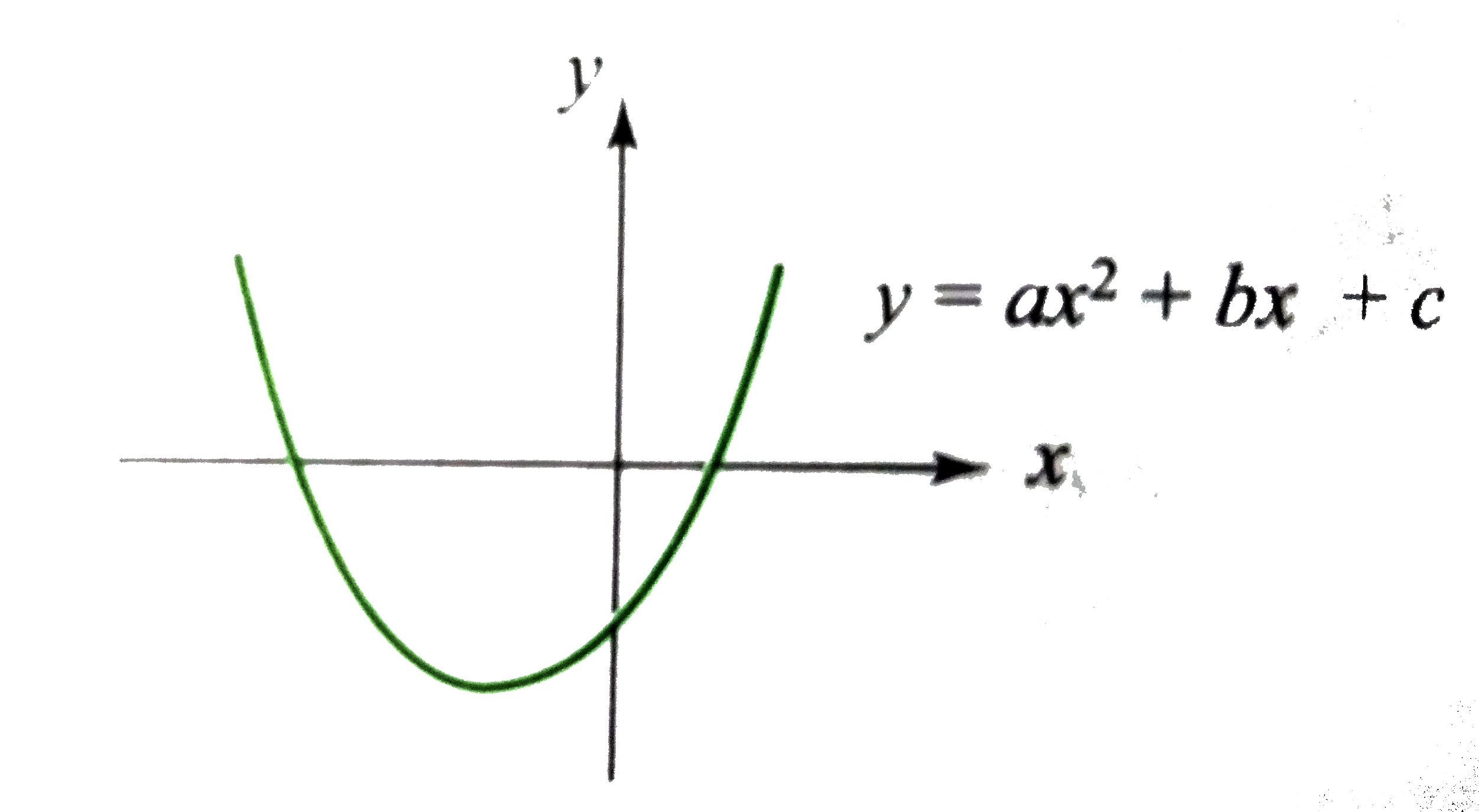Let f(x)=x3+ax2+bx+5sin2θ+c be can increasing function of x(θ is a parameter), Then, a and b satisfy the condition:
a2−3b−15≥0
a2−3b+15≥0
a2−3b+15≤0
a>0andb>0
The correct Answer is:C
To determine the conditions under which the function f(x)=x3+ax2+bx+5sin2θ+c is an increasing function of x, we need to analyze its derivative.
1. Differentiate the Function:
We start by differentiating f(x) with respect to x:
f′(x)=ddx(x3+ax2+bx+5sin2θ+c)
Using the power rule, we get:
f′(x)=3x2+2ax+b+5⋅ddx(sin2θ)
Since sin2θ is a constant with respect to x, its derivative is 0. Thus:
f′(x)=3x2+2ax+b
2. Condition for Increasing Function:
For f(x) to be an increasing function, its derivative must be greater than or equal to zero:
f′(x)≥0
This means:
3x2+2ax+b≥0
3. Analyzing the Quadratic:
The expression 3x2+2ax+b is a quadratic function in x. For this quadratic to be non-negative for all x, its discriminant must be less than or equal to zero:
D=(2a)2−4⋅3⋅b≤0
Simplifying the discriminant:
4a2−12b≤0
4. Rearranging the Inequality:
Rearranging gives us:
4a2≤12b
Dividing through by 4:
a2≤3b
5. Final Condition:
We can express this condition as:
a2−3b≤0
This means that for f(x) to be an increasing function, the values of a and b must satisfy:
a2−3b+15<0
Conclusion:
Thus, the condition that a and b must satisfy for f(x) to be an increasing function is:
a2−3b+15<0
We start by differentiating f(x) with respect to x:
f′(x)=ddx(x3+ax2+bx+5sin2θ+c)
Using the power rule, we get:
f′(x)=3x2+2ax+b+5⋅ddx(sin2θ)
Since sin2θ is a constant with respect to x, its derivative is 0. Thus:
f′(x)=3x2+2ax+b
For f(x) to be an increasing function, its derivative must be greater than or equal to zero:
f′(x)≥0
This means:
3x2+2ax+b≥0
The expression 3x2+2ax+b is a quadratic function in x. For this quadratic to be non-negative for all x, its discriminant must be less than or equal to zero:
D=(2a)2−4⋅3⋅b≤0
Simplifying the discriminant:
4a2−12b≤0
Rearranging gives us:
4a2≤12b
Dividing through by 4:
a2≤3b
We can express this condition as:
a2−3b≤0
This means that for f(x) to be an increasing function, the values of a and b must satisfy:
a2−3b+15<0
Thus, the condition that a and b must satisfy for f(x) to be an increasing function is:
a2−3b+15<0
Similar Questions
Knowledge Check
Let f(x)=x3+ax2+bx+5sin2 x be an increasing function on the set R. Then a and b satisfy
Aa2−3b−15>0Ba2−3b+15>0Ca2−3b+15<0Da>0 and b>0Let f(x)=x3+ax2+bx+5sin2x be an increasing function on the set R. Then,
Aa2−3b+15>0Ba2−3b+5<0Ca2−3b+15<0Da2−3b+5>0If sinθ and cosθ are the roots of the equation ax2+bx+c=0, then a,b and c satisfy the relation
Aab+b2+2ac=0Bab−b2+2ac=0Cab+c2+2ab=0Dab−b2−2ac=0
If sinθandcosθ are the roots of the equation ax2−bx+c=0, then a,bandc satisfy the relation
View Solutioncondition that f(x)=x3+ax2+bx2+c is anincreasing function for all real values of 'x' is
View SolutionLet f(x)=2x3+ax2+bx−3cos2x is an increasing function for all x∈R such that ma2+nb+18<0 then the value of m+n+7 is
View SolutionLet f(X)=ax2+bx+c. Consider the following diagram
 .
.
View SolutionLet f(x)=ax2−bx+c2,b≠0andf(x)≠0 for all x∈R. Then
View Solution
